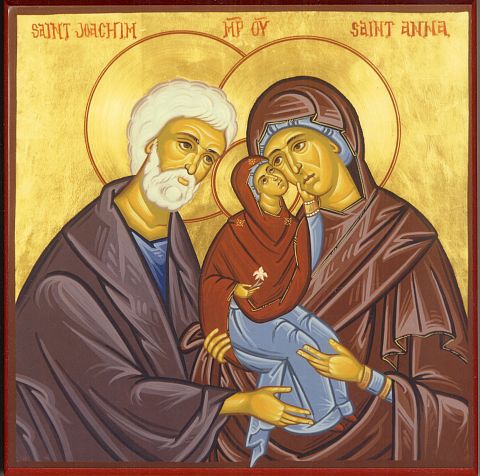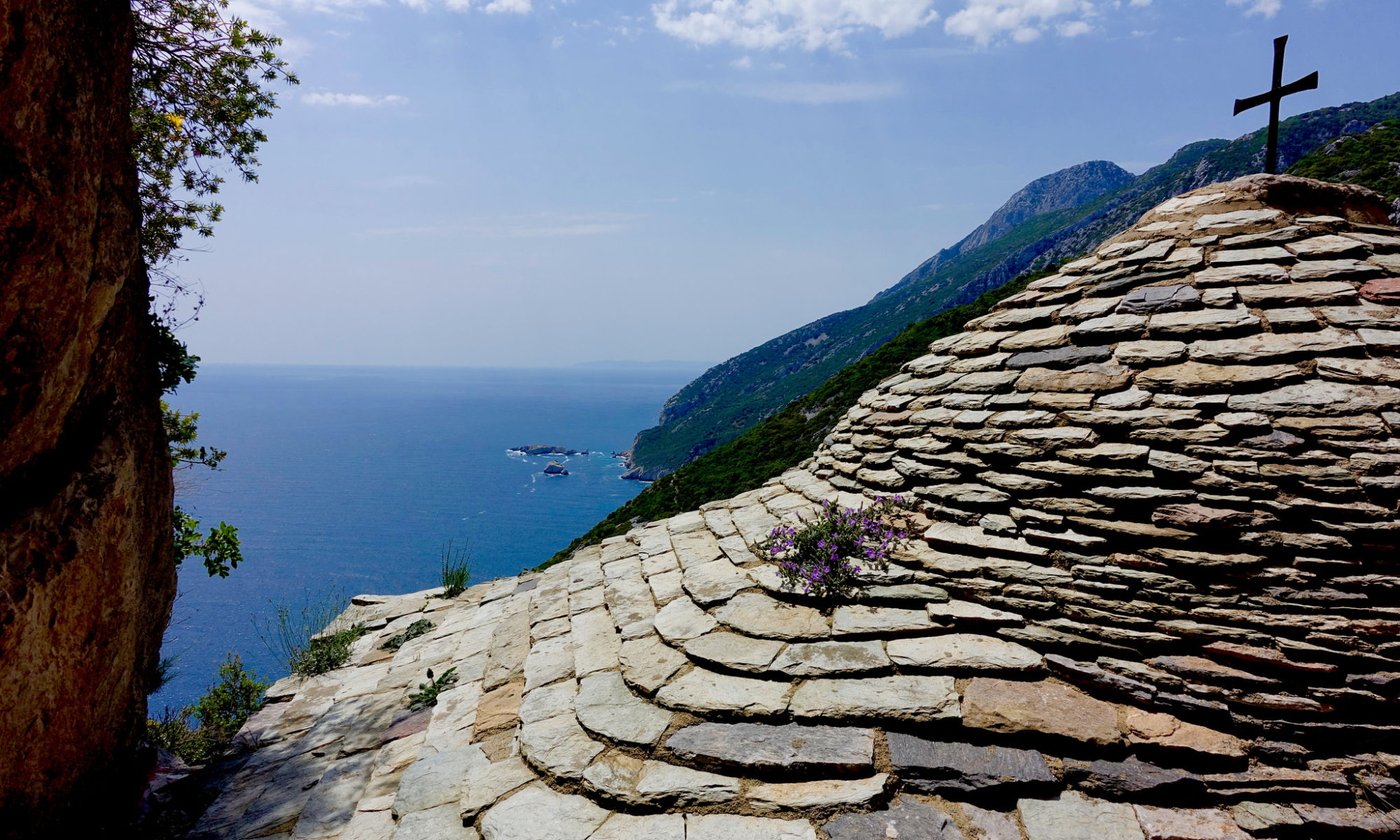 I always asked myself why we commemorate the Saints Joachim and Anna at the end of almost every church service. Beside the Savior and the Theotokos only the “holy and righteous ancestors of God” are never omitted from any daily dismissal.
I always asked myself why we commemorate the Saints Joachim and Anna at the end of almost every church service. Beside the Savior and the Theotokos only the “holy and righteous ancestors of God” are never omitted from any daily dismissal.
May Christ our true God through the intercessions of His all-immaculate and all-blameless holy Mother […] of the holy and righteous ancestors of God‚ Joachim and Anna and of all the Saints‚ have mercy upon us and save us‚ forasmuch as He is good and loves mankind.
I always understood this as a Christological formula meant to emphasize that Jesus Christ – God Himself – was born out of a human mother with regular human parents. And this is correct.
There is however another thing that is curious‚ the fact that the Holy parents are always commemorated in conjunction with the saint(s) of the day and all the saints. This to me cannot be a coincidence; it has to have a meaning‚ and this meaning is linked with the feast that precedes the commemoration of the holy couple: the Nativity of the Theotokos.
Going back one step we have to ask ourselves first what is a saint? A saint‚ would answer a theologian‚ is a person that has reached theosis‚ the likeness of God and rejoices in communion with the Lord in heavens.
The concept of theosis however is a concept that was missing in the days of the Old Testament. We know from various Biblical and Holy Tradition sources that the patriarchs‚ the prophets and all the righteous of the Old Testament were still going into hell‚ and were not entering directly in communion with God after their death. Theosis became possible only after incarnation. “God became man so man could become a god” is the patristic formula of St. Athanasius the Great. Christ is the One that made theosis possible by opening the way from sin to virtue‚ from hell to paradise. So we cannot really talk of saints and paradise‚ in the Christian acceptance before Christ.
Here is an excerpt however from the matins service of the Nativity of the Theotokos:
“Theotokos‚ you are mystical Paradise‚ for without husbandry you have blossomed Christ‚ by Whom the very lifebearing tree of the Cross in the earth has been planted”.
Why are the Fathers calling her ”Paradise” and in other place “God’s own heaven” or the “gate to paradise” ? The immediate response is because she accepted to give birth to God incarnate therefore making possible the salvation of human race.
But there is another element easily overlooked‚ why did she accepted the task presented by Gabriel the Archangel? Tradition sources say that at the Annunciation moment‚ when the Archangel explained her mission‚ all the righteous of the Old Testament were trembling with fear waiting for her answer. They knew that she was free and not conditioned to say “yes” and‚ using her God given freedom of choice‚ she could have said “no” to such a difficult and rather strange task for a teenager.
The same Fathers however explain that she could not have answered anything else but “yes” for the very same reason she could have said “no”. She was free to choose indeed‚ but she also possessed something that she achieved in the years she spent in noetic prayer in the Holy of the Holies of the Temple: real spiritual discernment. She did not understand her mission through human reason‚ but by opening her whole being to the will of God: “Behold the handmaid of the Lord. Let it be to me according to your word.” (Luk 1:38). Her answer could not have been anything else but “yes” because by free choice her will was one with the will of God. One can say that at that moment she was already in communion with God.
For the Virgin Mary Annunciation is what Pentecost will be for the Apostles later on: an acceptance into grace and an activation of her full spiritual potential through communion with God. More so‚ bearing the Son of God in her womb‚ she will be in continuous communion with Christ like the saints will be in paradise. The regular exchange that happens between a mother and her unborn on a physical level happened here also on a spiritual level. She will give Him flesh and in exchange He will bestow upon her His saving grace. She will give Him earthly life while paradoxically taking life herself from the very source of life.
By being the Bearer of God‚ she became actually the first human being to reach theosis‚ a full‚ uninterrupted Communion with God. We can say therefore that The Holy Virgin is the first of the Saints‚ in the Christian acceptance of the term. Theotokos is consequently the source of all the following saints‚ the mother not just of Christ but of all those that will follow in his footsteps and will acquire the communion in grace with God.
This is why‚ in my humble opinion‚ the “holy and righteous ancestors of God Joachim and Anna” are commemorated together with all the saints‚ because they have given birth to the Theotokos‚ the very gate through which all saints will enter paradise.
Why we commemorate the Saints Joachim and Anna? ‚Rejoice‚ only veritable east gate that only the Logos has gone through. Rejoice‚ for in your giving birth you shattered Hades’ bars and gates. All-lauded one‚ rejoice‚ divine entrance of those who are being saved ( from the canon of the Akathist Hymn).
